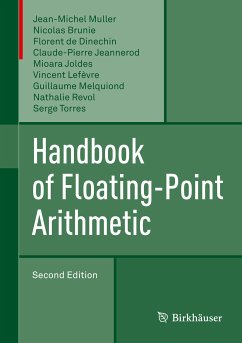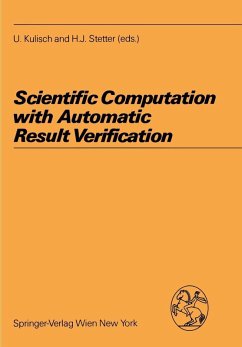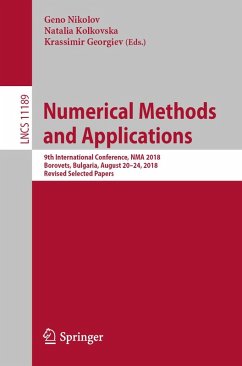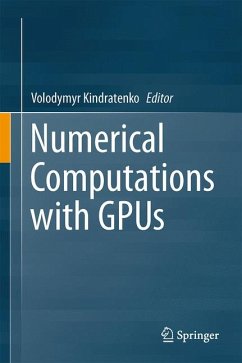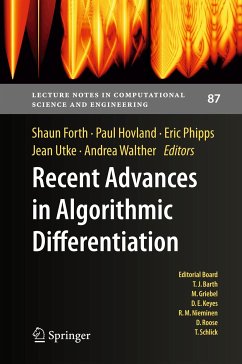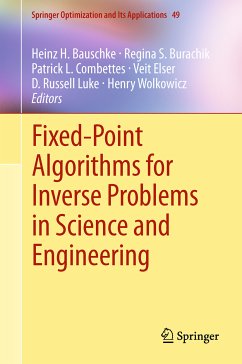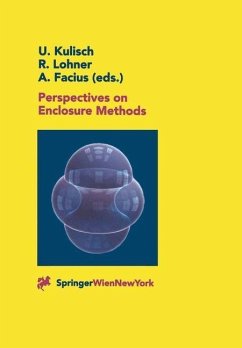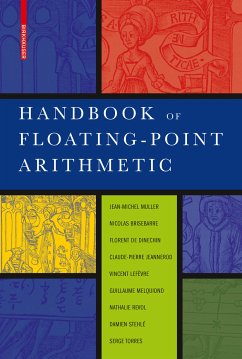
Handbook of Floating-Point Arithmetic (eBook, PDF)
Versandkostenfrei!
Sofort per Download lieferbar
120,95 €
inkl. MwSt.
Weitere Ausgaben:

PAYBACK Punkte
60 °P sammeln!
Floating-point arithmetic is the most widely used way of implementing real-number arithmetic on modern computers. However, making such an arithmetic reliable and portable, yet fast, is a very difficult task. As a result, floating-point arithmetic is far from being exploited to its full potential. This handbook aims to provide a complete overview of modern floating-point arithmetic. So that the techniques presented can directly be put into practice in actual coding or design, they are illustrated, whenever possible, by a corresponding program in C.The handbook is designed for programmers of num...
Floating-point arithmetic is the most widely used way of implementing real-number arithmetic on modern computers. However, making such an arithmetic reliable and portable, yet fast, is a very difficult task. As a result, floating-point arithmetic is far from being exploited to its full potential. This handbook aims to provide a complete overview of modern floating-point arithmetic. So that the techniques presented can directly be put into practice in actual coding or design, they are illustrated, whenever possible, by a corresponding program in C.
The handbook is designed for programmers of numerical applications, compiler designers, programmers of floating-point algorithms, designers of arithmetic operators, and more generally, students and researchers in numerical analysis who wish to better understand a tool used in their daily work and research.
The handbook is designed for programmers of numerical applications, compiler designers, programmers of floating-point algorithms, designers of arithmetic operators, and more generally, students and researchers in numerical analysis who wish to better understand a tool used in their daily work and research.
Dieser Download kann aus rechtlichen Gründen nur mit Rechnungsadresse in A, B, BG, CY, CZ, D, DK, EW, E, FIN, F, GR, HR, H, IRL, I, LT, L, LR, M, NL, PL, P, R, S, SLO, SK ausgeliefert werden.



